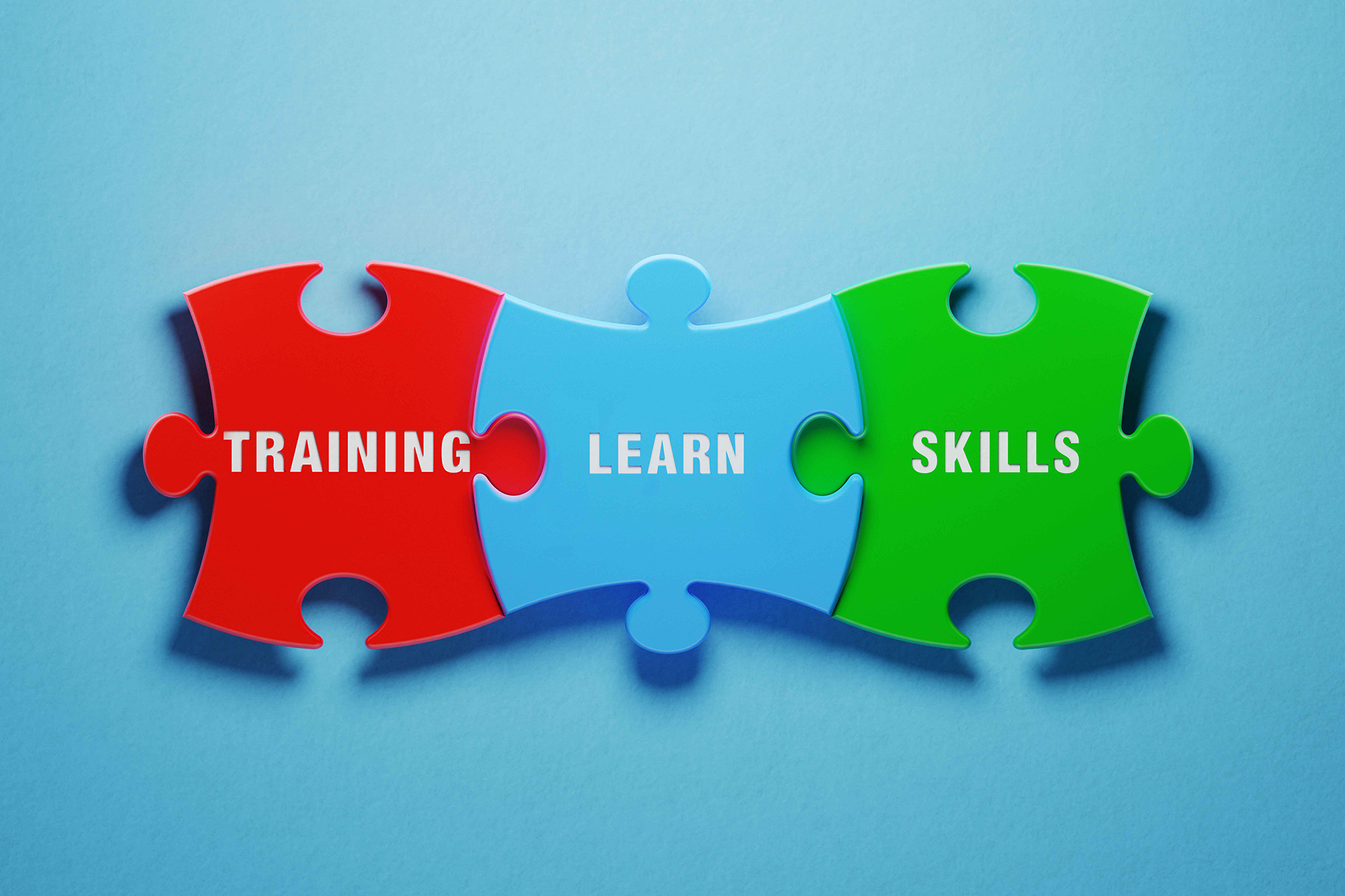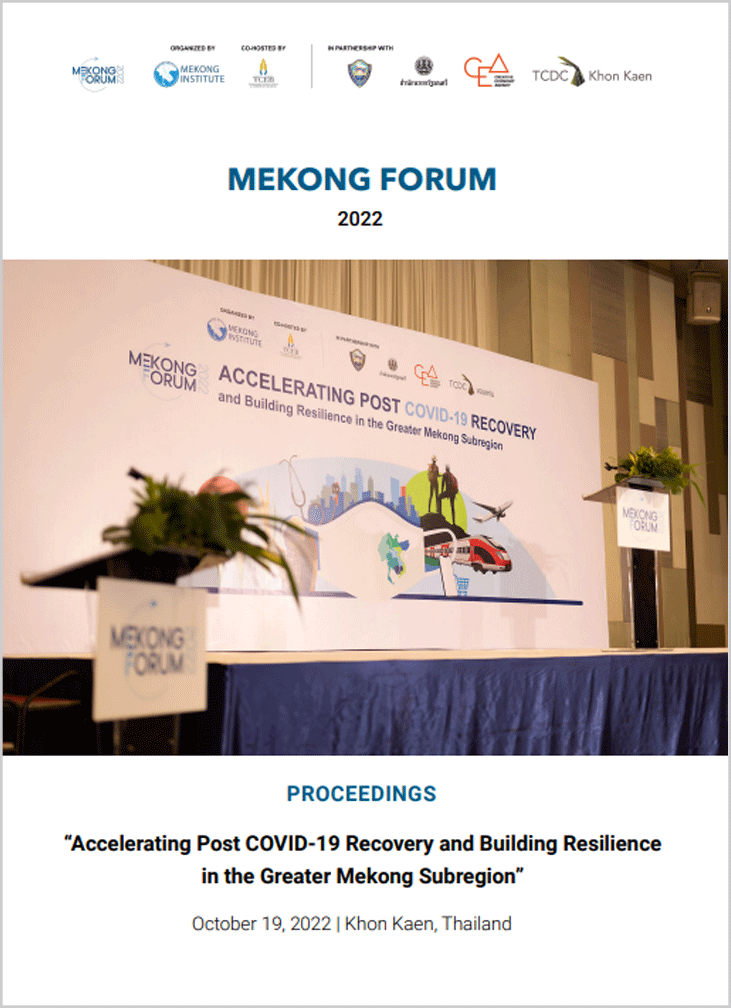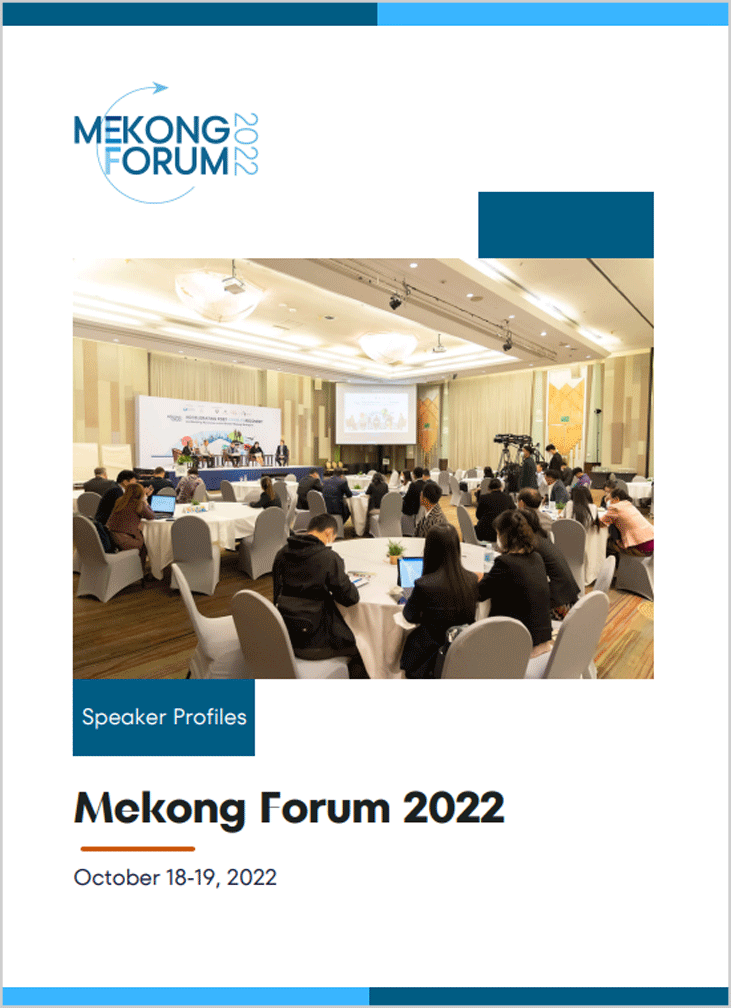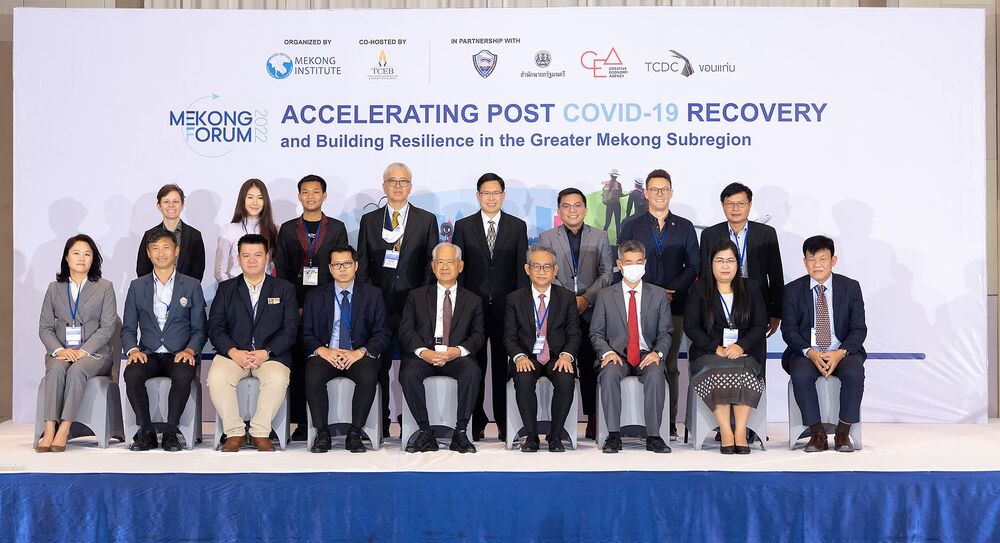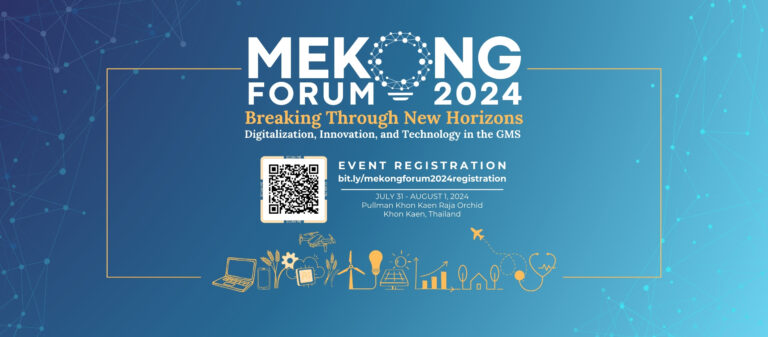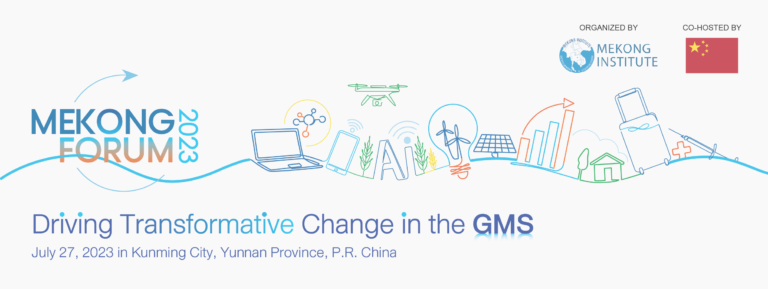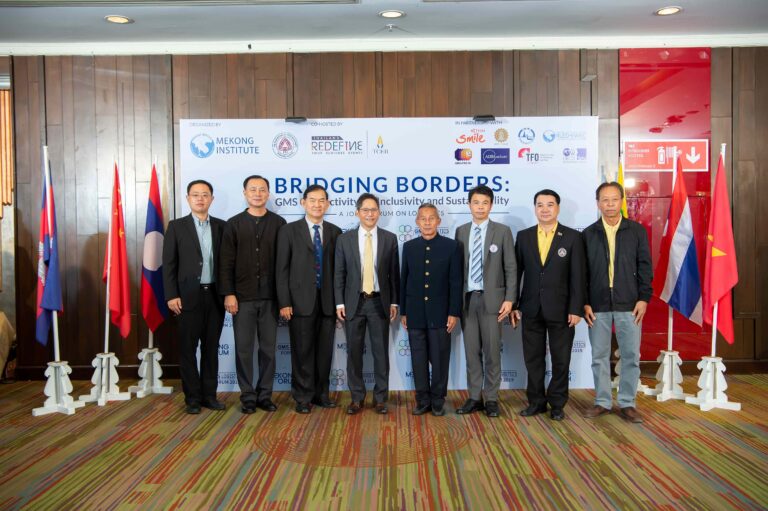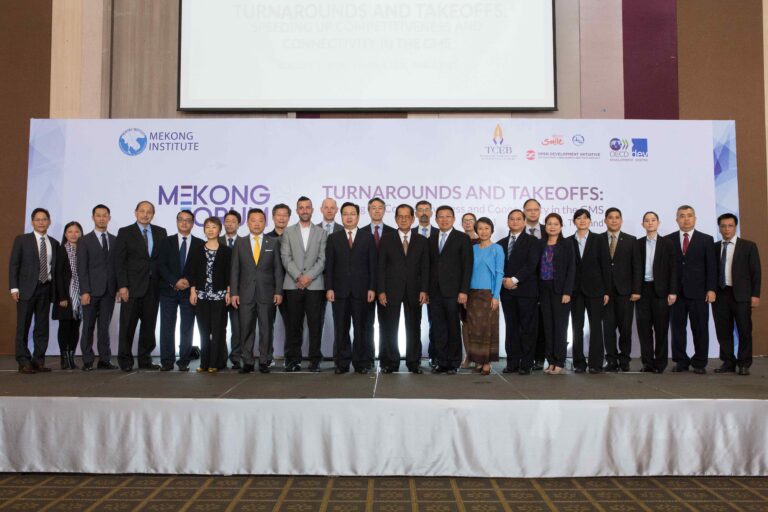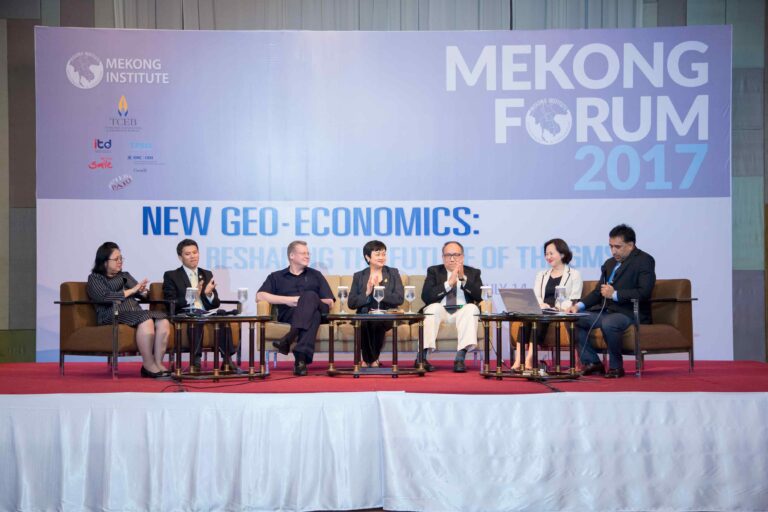Accelerating Post COVID-19 Recovery and Building Resilience in the Greater Mekong Subregion
October 19, 2022, Pullman Khon Kaen Raja Orchid, Khon Kaen, Thailand
Since its establishment in 1992, the Greater Mekong Subregion (GMS) has increasingly cooperated and integrated to promote the flow of goods and services through the GMS Economic Corridor, as well as in tourism and hospitality, food security, and energy resources. However, in the last two years, the GMS countries have been adversely impacted by COVID-19 to varying degrees depending on the resilience of their economies and the capacity of the public health system. At the regional level, challenges exist in building back socioeconomic stability, especially among the poor and vulnerable groups where opportunities to generate new progress toward the Sustainable Development Goals (SDGs) are limited.
After taking immediate actions in response to the pandemic, the world is now moving toward COVID-19 recovery. It is an opportune time for countries to redefine prosperity and facilitate socioeconomic reconstruction. Consequently, several initiatives have been implemented focusing on recovery plans which emphasize more integrated, inclusive, green, resilient, sustainable, and stronger reforms. These include smart agriculture, sustainable tourism, green economy and finance, and food-energy-water nexus.
Furthermore, as GMS is an integral part of ASEAN, the GMS COVID-19 Response and Recovery Plan 2021–2023 is aptly in line with ASEAN Comprehensive Recovery Framework (ACRF) which is the consolidated exit strategy from the COVID-19 crisis. The GMS COVID-19 Response and Recovery Plan 2021–2023 highlights balancing health, economic, environmental, and social priorities as well as communicating with and engaging local governments, private sectors, and communities. One distinctive feature of the plan is its emphasis on greater regional cooperation and integration (RCI), such as the Building Back Better initiative. RCI has proven to be a powerful instrument during the pandemic response, particularly in cross-border management and vaccination roll-outs. Likewise, during the transition period to 2030, a more proactive stance of RCI should be taken to enhance synergy and complement existing cooperation frameworks to ensure a strong recovery, region-wide solidity, and preparation for future crises.
Given this context, Mekong Institute (MI) as an intergovernmental organization owned by the GMS, with the aim of strengthening the capacities of human resources for regional cooperation and integration, has initiated a flagship program together with its partners. The program seeks to promote post COVID-19 resilient economies by providing various proactive events such as GMS City Nodes Network and GMS Knowledge Network. Initiated by MI, the Mekong Forum has been identified as one of the activities to provide an interactive platform for the discussion and sharing of visions of stakeholders to build synergy and address challenges to ensure a successful recovery of the GMS as well as the attainment of long-term sustainability across the subregion.
This year’s Mekong Forum will highlight the importance of increasing long-term resilience and building back better. With all the policies and action plans on COVID-19 already in place, the forum will also discuss how existing cooperation frameworks can be synergized and conducted successfully in real situations. Using this opportunity, the forum shall create common understanding among stakeholders and underline the importance of capacity development, making future implementation complementary and effective, and in turn, helping to revitalize GMS economies for greater and lasting impact in the post COVID-19 world.
Overall objective
The Mekong Forum 2022 aims to:
- bring together opinion leaders to discuss tools, instruments, experience and practical solutions which have been implemented to accelerate recovery and resilience of the GMS
- demonstrate the linkages between recovery and transition towards building resilience and capacity building and countries’ development agenda
- serve as a regional platform for building trust and synergies among businesses, government leaders, development experts, and practitioners
Participants
FORUM STRUCTURE
I. PLENARY SESSIONS
II. PARALLEL BREAKOUT SESSIONS
Parallel breakout sessions are thematic workshops which are directly related to the theme of the conference: “Accelerating Post COVID-19 Recovery and Building Resilience in the Greater Mekong Subregion”. Depending on the interests, participants are to pre-select the breakout sessions before the conference.
In total, there are two rounds of rotation (morning and afternoon) with 3 sessions on offer for each round. The foreseen topics are:
- Inclusive and Resilient Society
- Seamless Connectivity
- GMS’ Priority Sectors
- Create opportunities for participants to share knowledge and experiences and discuss interesting projects, approaches, initiatives, and solutions related to Post COVID-19 recovery and resilience building as well as other topics
- Catalyze peer learning for collaborative reflection and developing ideas to address questions and challenges
- Promote networking among participants – enabling the exploration of new emerging topics
III. PANEL DISCUSSION ON “ACCELERATING RECOVERY FROM COVID-19”
DOWNLOAD CONFERNCE MATERIALS
Thematic Workshop Sessions at a Glance
- Dr. Wongsa Laohasiriwong, Khon Kaen University
- Dr. Raymond Francis Sarmiento, eHealth Information Network (AeHIN)
- Dr. Viengmany Bounkham, Deputy Director General of Department of Planning and Cooperation, Ministry of Health, Lao PDR
- Dr. Vipat Kuruchittham, Executive Director of Southeast Asia One Health University Network (SEAOHUN)
- Dr. Julian Latimer Clarke, Program Specialist, Trade and Investment Facilitation Department, Mekong Institute
- Mr. Sathaporn Larkanpan, Stevia Technew Thailand, Bangkok, Thailand
- Ms. Jelena (Yelena) Kremenjas, General Manager Sustainability, DHL SUPPLY CHAIN (THAILAND) Ltd., Head Office, Bangkok, Thailand
- Ms. Michelle Zhao, General Manager for Operation, Royal Group Phnom Penh SEZ, Phnom Penh, Cambodia
- Ms. Montinee Yongvikul, Director of Creative City Development, Creative Economy Agency, Thailand
- Mr. Benjamin Milton Hampe, Project Director of KONNECT ASEAN, ASEAN Foundation
- Ms. Katalin Bokor, Economic Affairs Officer, Trade and Creative Economy, Division on International Trade and Commodities, United Nations Conference on Trade and Development
- Mr. Sajib Azad, Policy Expert, The United Nations Capital Development Fund, UNCDF
- Prof. Mr. Jian Wang, Chair Professor of International Business and EBusiness, Center for International Business Studies, University of International Business and Economics (UIBE)
- Ms. Xin Yi Lim, Executive Director of Sustainability and Agricultural Impact Pinduoduo Inc.
- Mr. Chonladet Khemarattana, Chairman, Thai Fintech Association
- Mr. Tiat Jin (TJ) OOI, Lead Consultant, ERIA ES-I Knowledge
- Mr. Sa-nga Sattanun, Program Manager, Mekong Institute
- Ms. Catherine Germier-Hamel, CEO, Destination Mekong
- Mr. Joomphol Phongnailert, Senior Manager – Northeastern Regional Office, Thailand Convention and Exhibition Bureau (TCEB), Thailand
- Dr. Michail Toanoglou, Professor of Hospitality & Tourism Management, Expert in Sustainable Destination Management & Branding, Jeonju University School of Tourism & Culture, South Korea
- Mr. Gerrit Kruger, Destination Mekong

